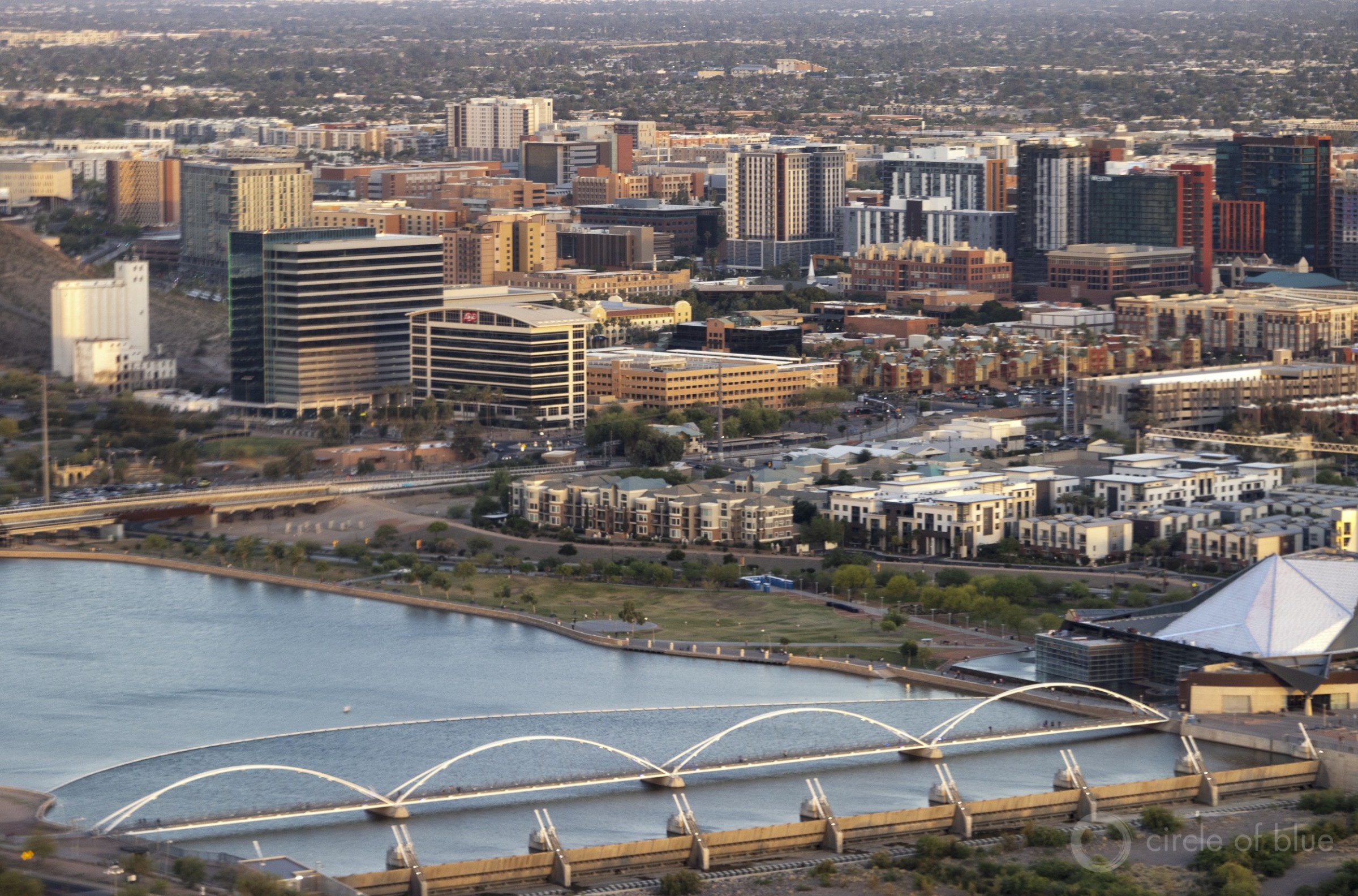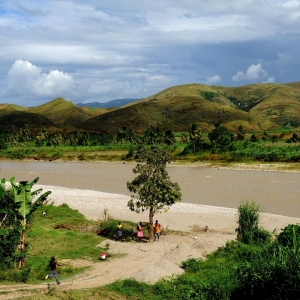The Stream, June 14, 2023: Momentum Builds in Manitoba For Environmental Protections

Phoenix, Arizona. Photo © J. Carl Ganter/Circle of Blue
YOUR GLOBAL RUNDOWN
- Extreme summer rains, known locally as ‘Dragon boat water,’ submerge streets, farmland, and buildings in eastern and southwestern China and leave at least three people dead.
- In one Winnipeg neighborhood, residents continue their fight for a right to a healthy environment — with possible legislation on the horizon.
- Heavy rains and floods threaten cocoa and bean harvests in Ivory Coast.
- New research fills “scientific gaps” in the fight to save the Brazilian Amazon’s endangered pink dolphins.
Arizona policymakers consider a $5 billion plan to desalinate seawater in Mexico, and pipe it to Phoenix.
“We live in a world with gravity. The minute you have to move water around, you have huge fixed costs.” — Meagan Mauter, an associate professor of civil and environmental engineering at Stanford University.
After acknowledging on June 1 that Arizona does not have enough groundwater to support its planned growth, state officials are reportedly considering a $5 billion plan to desalinate water from Mexico’s Puerto Peñasco, and transport it 200 miles to Phoenix, the New York Times reports.
The project has been proposed by Israeli-owned IDE Technologies, one of the largest desalination companies in the world.
On top of cost, there are a number of obstacles to the plan: “It would flood the northern Gulf of California with waste brine, threatening one of Mexico’s most productive fisheries,” while carving a “freeway-sized corridor through a U.S. national monument and UNESCO site, established to protect a fragile desert ecosystem.” Huge quantities of energy would be needed to lift the water 2,000 feet.
Meanwhile Puerto Peñasco, which relies on aquifers, is unable to “provide enough potable water for its own residents.”
— Christian Thorsberg, Interim Stream Editor
Recent WaterNews from Circle of Blue
- Say Goodbye to Lawns in Drying U.S. West — Booming metro areas test the limits of water supply and growth.
- HotSpots H2O: Day Zero Threatens Uruguay’s Capital — A mounting crisis is unfolding as ‘Day Zero’ draws closer in Montevideo.
The Lead
While more than 150 countries around the world and three other Canadian provinces guarantee their residents the right to a healthy environment, such legislation does not exist in Manitoba, The Narwhal reports. This is why those living in Winnipeg’s Point Douglas neighborhood continue to advocate for government action and protection against the industrial corridors which have turned their homes and wild ecosystems into “a toxic soup.”
Unhealthy soil, dust in the air, lead contamination, and polluted waterfronts are among the largest issues facing Point Douglas, the lowest-income community in Manitoba. Once a biodiverse and clean region, the railroad industry and its legacy, compounded by illegal dumping, have exacerbated both pollution and a negative perception of the vibrant community.
In the absence of outside help, community members have been leading cleanups, restoration initiatives, and restorative justice efforts. Despite these best efforts, major health effects and concerns, related especially to groundwater and air, continue to harm Point Douglas and its residents.
A new report from the Manitoba Eco-Network amplified residents’ calls for change — the document includes interviews, analyses, and the region’s extensive history of contamination.
As attention mounts, advocates are optimistic that environmental human rights legislation will soon deliver “justice and health” for Point Douglas.
This Week’s Top Water Stories, Told In Numbers
35
Consecutive hours during which rain fell last weekend in the Chinese city of Yulin, Reuters reports. Severe seasonal storms have hit the country’s southwestern, southern, and eastern regions. On the coastal city of Beihai, cars, streets, subway tunnels, and buildings were submerged in running floodwater, prompting emergency evacuations. In rural provinces, water and heavy winds destroyed trees and farmland, raising concerns over food security and some of the country’s granaries. As of Sunday, at least three people have died in the storms.
7
Inches of rain which fell last week in Soubre, a western region of Ivory Coast, leading to flash floods and concerns that the country’s cocoa mid-crop will be lost, Reuters reports. Two straight weeks of rain in the west and south have also damaged plantations and imperil bean harvests, farmers said.
On the Radar
Researchers gathered last December in the Brazilian state Amazona, at the Amanã Sustainable Development Reserve, to fit pink river dolphins — an endangered, freshwater species — with radio transmitters, Mongabay reports. The transmitters will help scientists identify and map the dolphins’ main habitat, informing which regions to prioritize for conservation and species protection.
More Water News
Loch Ness: Dry spells in Scotland have scientists concerned that Loch Ness and River Ness will see their water levels drop, hurting fisheries, the Guardian reports.
Newcrest Cadia Hill Gold Mine: The New South Wales Environment Protection Authority will begin testing water in communities near the Newcrest Cadia Hill gold mine, after “reports of heavy metals being found in people’s bloodstream and drinking water,” the Guardian reports.
Christian Thorsberg is an environmental writer from Chicago. He is passionate about climate and cultural phenomena that often appear slow or invisible, and he examines these themes in his journalism, poetry, and fiction.







Outstanding publications. I absolutely appreciate how much knowledge can be found here.